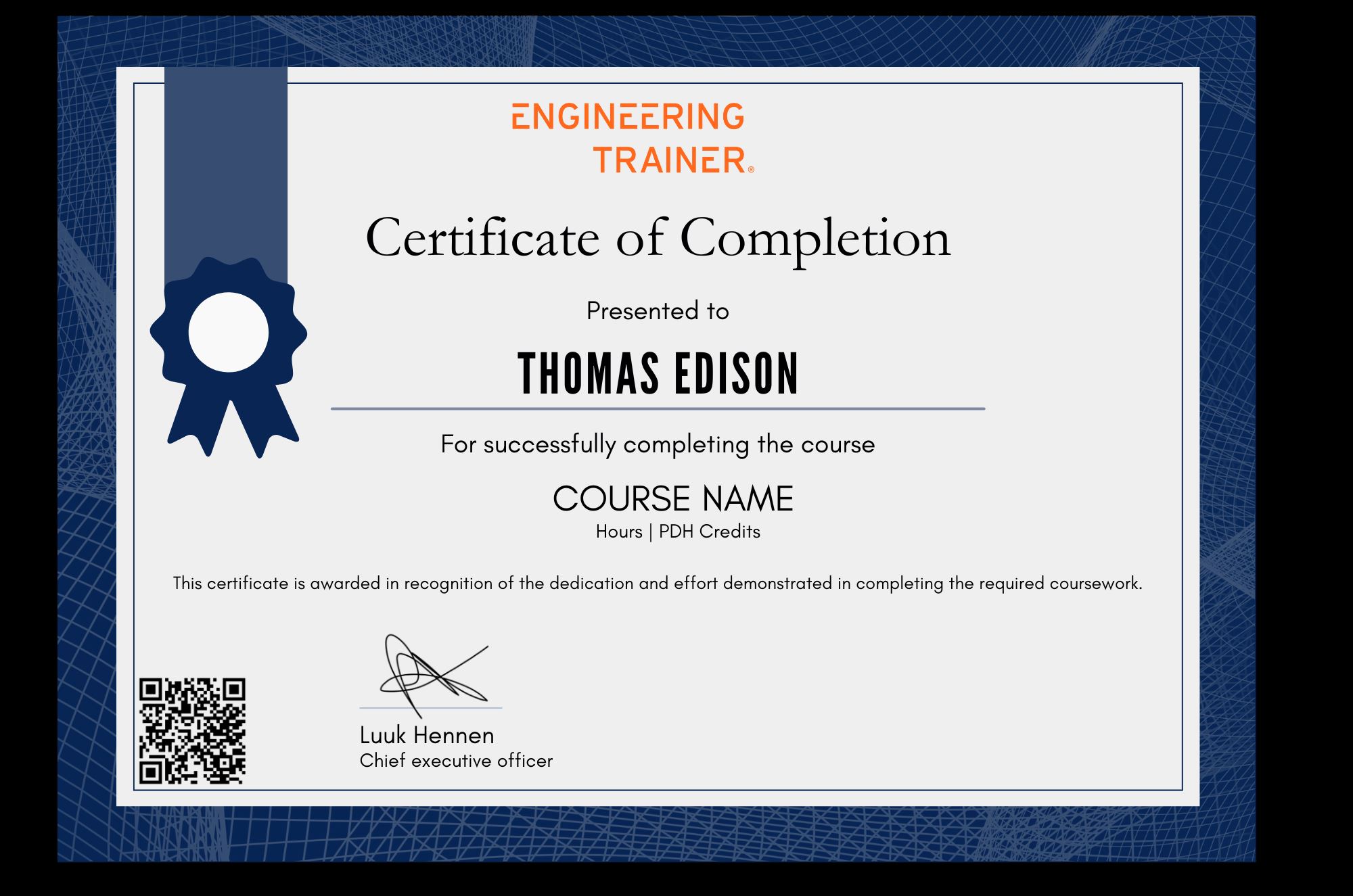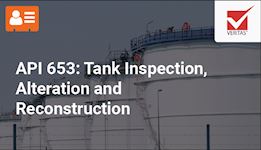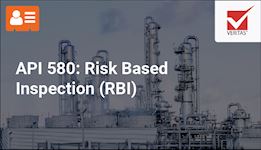Stress Corrosion Cracking (SCC) of Gas and Liquid Pipelines
Why take this course?
Prevent and manage Stress Corrosion Cracking (SCC) in pipelines. This self-paced course covers SCC risks, detection, and mitigation strategies for gas and liquid pipelines. Gain comprehensive knowledge to make informed decisions on pipeline integrity, maintenance, and regulatory compliance. Includes video lectures, quizzes, and a certificate with PDH credits.
What you'll learn
After this course, you...
• understand the mechanisms of SCC, including the factors that contribute to its initiation and propagation,
• know how a Risk Assessment for SCC should be performed; are able to understand the factors that influence SCC occurrence, including environmental conditions, material properties, and stress levels,
• have obtained a good understanding of the various non• destructive testing techniques used for the detection and monitoring of SCC (ultrasonic testing, radiography, visual inspections, and other advanced inspection methods),
• have a solid overview of the mitigation strategies for SSC, including material selection considerations, coating and cathodic protection methods, and the use of corrosion inhibitors,
• have learned about effective maintenance practices and integrity management strategies to prevent SCC,
• have seen case studies and the lessons learned from SCC incidents in pipelines.
About the course
Stress Corrosion Cracking (SCC) is a significant concern in the oil, gas, and chemical industries as it can lead to pipeline failures, and pose safety and environmental risks. SSC is a process in which a material undergoes cracking due to the combined influence of tensile stress and a corrosive environment. It is important for personnel to be aware of the risks associated with SCC and that they can implement appropriate measures to prevent its occurrence.
This training course will equip participants with the knowledge and skills to prevent, detect, and manage SCC in gas and liquid pipelines. By the end of the course, participants will have a comprehensive understanding of SCC in gas and liquid pipelines, as well as the knowledge and skills necessary to identify, prevent, and mitigate SCC-related risks. They will be skilled in making informed decisions regarding pipeline integrity management, maintenance practices, and regulatory compliance.
The course consists of 15hr of live sessions with the instructor. All training content is provided through your EngineeringTrainer account.
Meet your instructor
Magdy Girgis
Materials Science, Metallurgy
Who should attend this course
• Professionals working in the oil and gas industry, particularly those involved in the design, construction, operation, and maintenance.• Individuals from related fields or academic backgrounds seeking to expand their knowledge of SCC and pipeline integrity may also find the course beneficial.
Prerequisites
Participants should have a basic understanding of engineering principles related to materials science, corrosion, and pipeline engineering.Familiarity with corrosion principles, types of corrosion, and corrosion control measures will facilitate a deeper understanding of SCC and its management in pipelines.
Program & Details
-
Why is SCC a problem?
Live
1. Stress corrosion failure can happen “unexpectedly” and rapidly after a period of service leading to disastrous failure of structures or leaks in pipe.
-
Causes of SCC
Live
1. Factors that trigger SCC; corrosive substances in the transported fluid, high tensile stresses on the pipeline, and susceptible materials
2. Environment factors; hydrogen sulfide (H2S), chloride ions, and other corrosive agents.
3. Tensile stresses. -
History of Pipeline SCC
Live
1. Pipeline failure statistics
2. National Energy Board (NEB) Hearings
3. Definition of SCC/environmentally assisted cracking (EAC) -
Mechanisms of Pipeline Environmentally Assisted Cracking (EAC)
Live
1. High-pH (Classical) SCC
2. Low-pH (Near-neutral pH, non-classical) SCC
3. Stages of cracking
4. Three factors – (i) tensile stress, (ii) corrosive environment, (iii) susceptible material
5. Role of coatings and CP
6. The latest thinking from SCC R&D -
Sources of Stress
Live
1. Residual stress
2. Operating stress (liquids vs. gas)
3. Surface preparation
4. Stress raisers such as welding defects and corrosion pits, associated to the cracking nucleation.
5. Circumferential/axial stresses
6. Crack propagation vs. sensitive microstructure -
Field Assessment of SCC
Live
1. Site selection
2. Background data selection
3. Documenting the environment and sample collection
4. Environment monitoring -
Managing Pipeline SCC
Live
1. ILI (In-line Inspection)
2. Hydrotesting
3. Direct assessment -
Risk Management and SCC
Live
1. The role of risk management
2. Conducting a comprehensive risk assessment
3. Identifying potential sources of SCC
4. Evaluating the probability of occurrence
5. Assessing the potential consequences of SCC-related failures -
Regulatory Compliance
Live
1. Regulatory bodies and applicable industry standards
2. Guidelines and requirements for the prevention and management of SCC in pipelines.
3. Inspection, monitoring, and maintenance practices to minimize the risk of SCC-related failures.
Certification


Why choose EngineeringTrainer
-
Unlimited Team-wide Access
-
Advance Technical Competences
-
Courses by Industry Authorities
Since using EngineeringTrainer our internal mentorship has a much more matured character.
Logan Chapman - COO at Chapman Consulting Inc.
Request a Quote
Train Smarter. Grow Faster.
Build real-world skills that help you make better engineering decisions, reduce errors, and stand out in your field.






